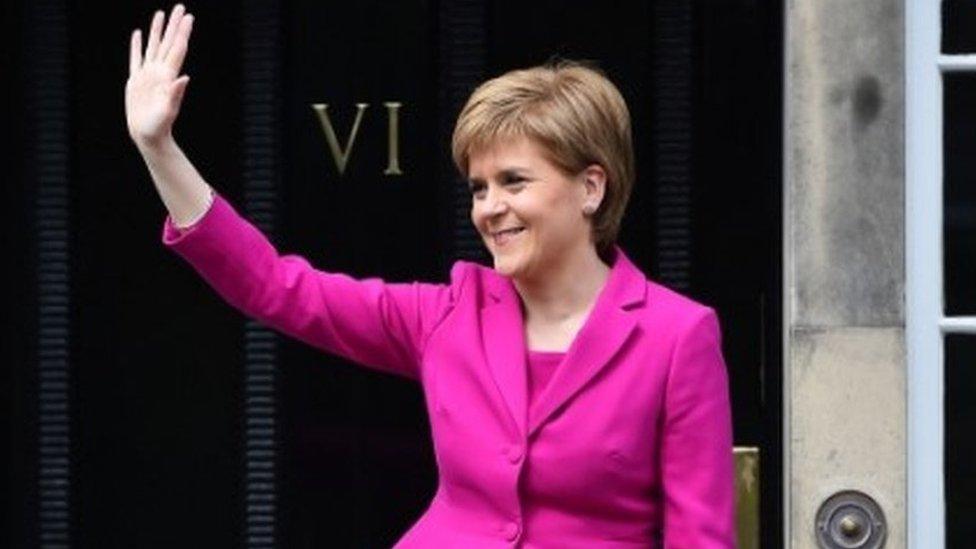New MSPs arrive at Scottish Parliament
- Published
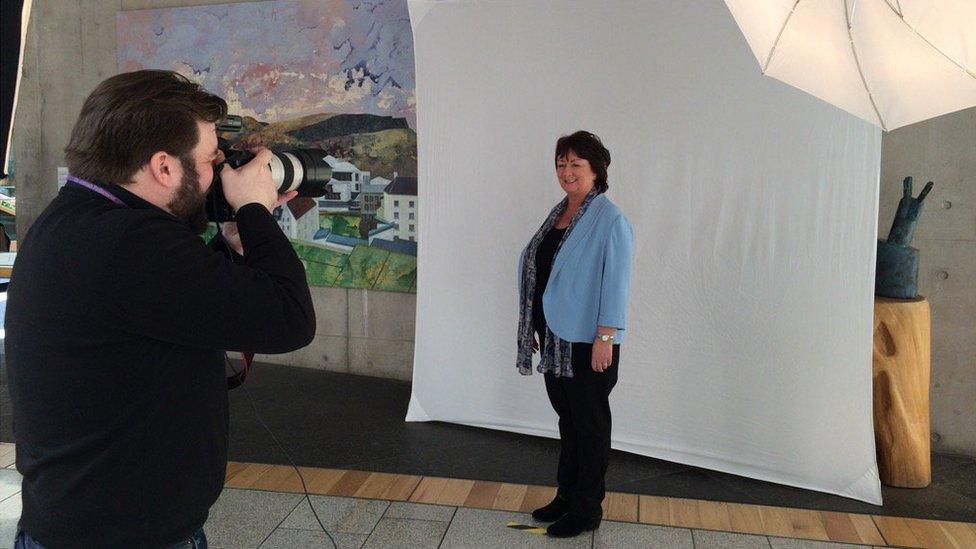
New MSPs including the SNP's Rona Mackay had their official photographs taken when they arrived at the parliament
The new MSPs elected in the Scottish Parliament election are spending their first day in the job at Holyrood.
They will be helped to find their feet with a new orientation course that shows them how the parliament works.
Offices will be allocated and security passes will be given out, but candidates will have to wait to see who will be the next presiding officer.
The election for that post is to be held on Thursday.
The post was previously held by Tricia Marwick of the SNP - but it is thought unlikely that the SNP will want to lose one of its 63 MSPs to the role this time around, given that they are two seats short of a majority in the 129-seat parliament.
Nicola Sturgeon, who is set to continue as first minister, has already ruled out forming a coalition with another party.
Instead, she said the SNP would govern as a minority administration, as it did between 2007 and 2011.
That would see the SNP seek support from politicians in other parties in order to pass legislation in the parliament.
Speaking to the BBC's Good Morning Scotland programme, Deputy First Minister John Swinney said he was confident the SNP had "common ground" on a range of topics with other parties in the parliament.
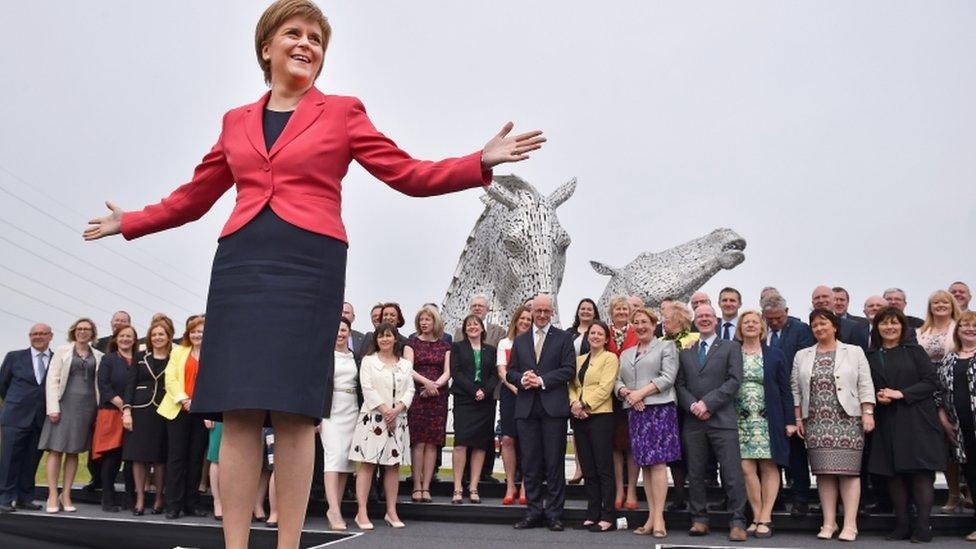
Nicola Sturgeon and the SNP will have to win the support of opposition politicians in order to pass legislation
He said: "In that spirit, the government will enter the new parliamentary term with a determination to implement the manifesto on which it won the election, and to work with other parties to enable us to do so.
"Since 2007 the opposition have on occasions supported us and on occasions opposed us. When we were working without a majority back in 2007 we sought agreement on a whole range of different topics. As a majority government after 2011 we also sought agreement on a variety of subjects with other political parties.
"So really the working practice of the government will be no different in the period going forward - we will work with others to seek the maximum agreement around our policy programme."

What happens next?
Monday 9 May - new MSPs start work, with registration at Holyrood
Wednesday 11 May - the Kirking of the Parliament - a multi-faith service - will be held
Thursday 12 May - the first meeting of the parliament will see MSPs take the oath and elect the parliament's new presiding officer on Thursday
Thursday 19 May - the new first minister is expected to be formally elected
Saturday 2 July - the Queen will address the Holyrood chamber when she officially opens the new session of parliament

The Conservatives came second in the election with 31 seats, Scottish Labour won 24 seats followed by the Scottish Greens on six and Liberal Democrats on five.
Scottish Conservative leader Ruth Davidson told Good Morning Scotland that her objective for the next five years was to take the independence question "off the table" and to "make the SNP focus on the things that matter to people" such as education, the NHS and policing.
She added: "Yes, absolutely there is a mandate for a third term SNP government, and I respect that. But the voters were pretty clear - that mandate is a qualified mandate, it is not a majority any more, and that does mean that the SNP has to find common cause with other parties too.
"I think particularly in yesterday's interview that the first minister did on the BBC, she seemed to suggest that she had a mandate to carry out everything in her manifesto without compromise whatsoever, and she would only seek common cause if it meant all of us changing our minds in order to fall in behind her.
"I understand the point she is making, but that is kind of not how it works. There's going to have to be serious people in the parliament that are making serious decisions about where compromises can be made in order to take our country forward, and that is healthy, that is democratic, that was always how our parliament was supposed to work."

Analysis by Brian Taylor, BBC Scotland political editor
The campaign over, it was back to work for our elected tribunes today. The old hands exuding confidence and familiarity. The new boys and girls anxiously finding their way around, constantly fearful that some brute is about to pinch their tuck.
It is, in truth, an elegant, genteel return. Thursday before we get a new presiding officer. Maybe Elaine Smith? Johann Lamont? Ken Macintosh? John Scott? Murdo Fraser? The retiring incumbent, Tricia Marwick, was on hand today, tendering helpful advice.
As things stand, the middle of next week before Nicola Sturgeon is confirmed as parliament's nominee to the Queen for first minister. To be clear, Ms Sturgeon can carry on governing for now with the previous mandate, Her Majesty being understandably disinclined to countenance a vacuum in Scottish governance.
Despite the cheery chat today, there is some offstage growling already under way anent the power structure in parliament.
For example, the Greens, understandably buoyed by their advance, are prone to say that they now hold the balance of power. Up to a point, Lord Copper. They no more hold the balance than do Labour, the Liberal Democrats, the Tories - or indeed any couple of rebellious MSPs within said parties.
- Published8 May 2016
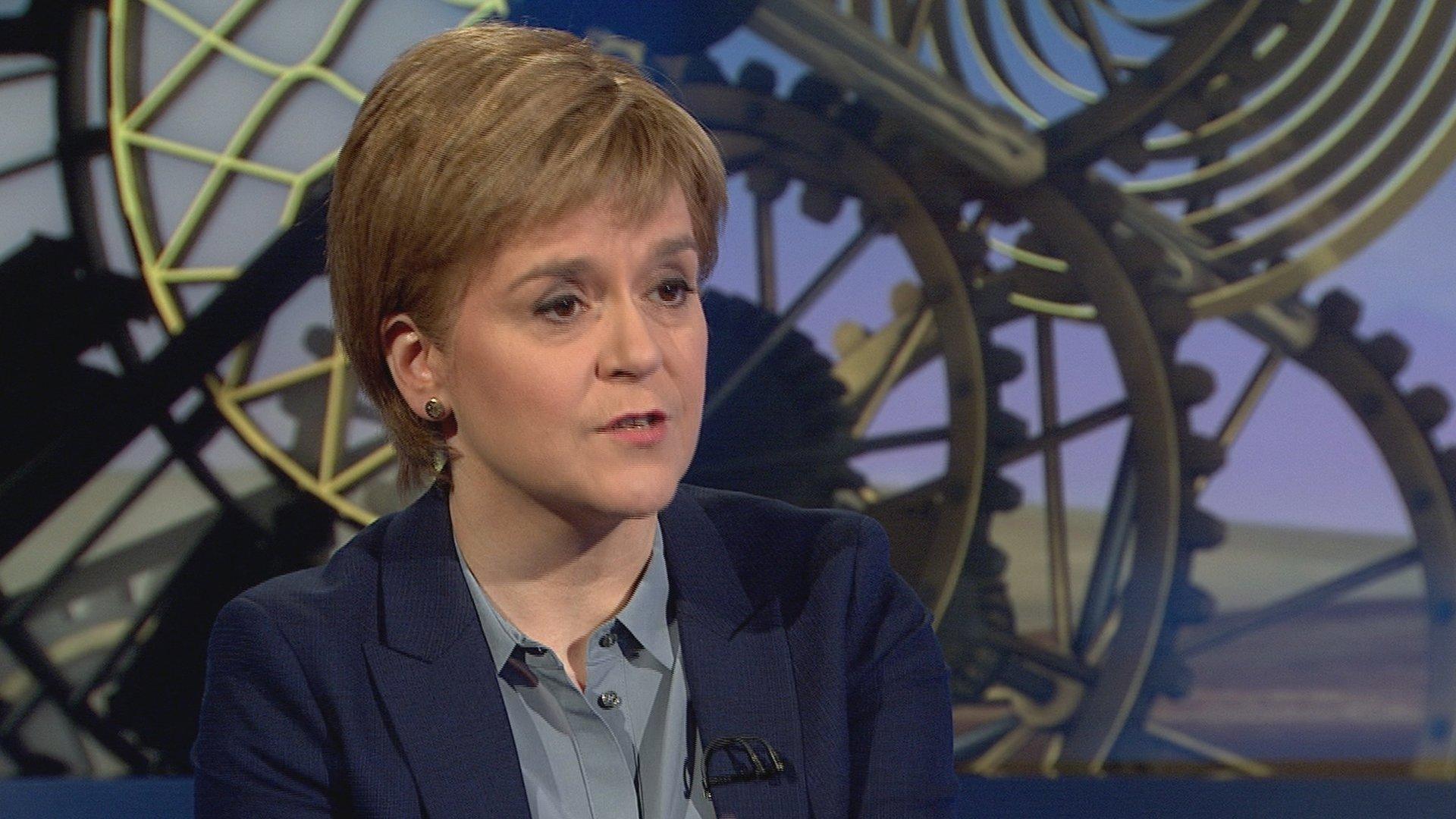
- Published8 May 2016
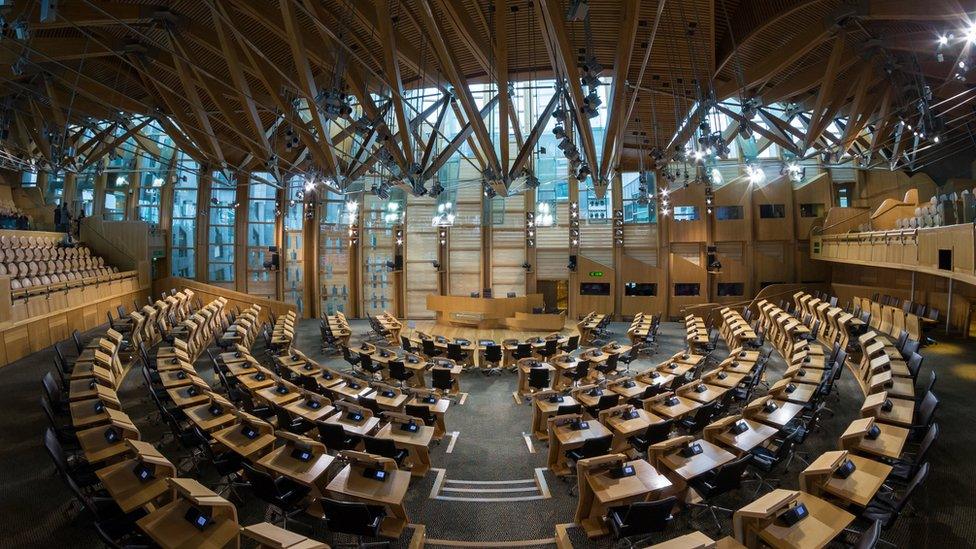
- Published7 May 2016
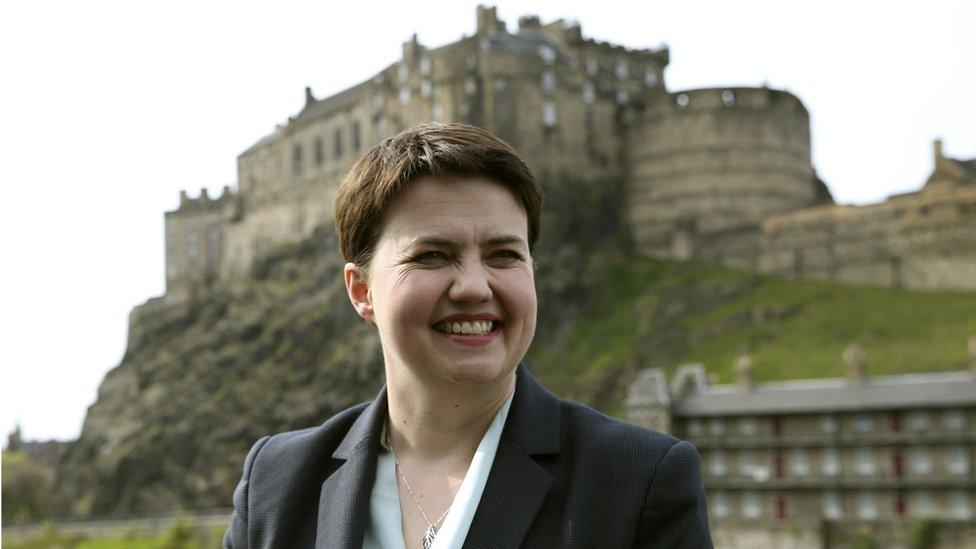
- Published7 May 2016
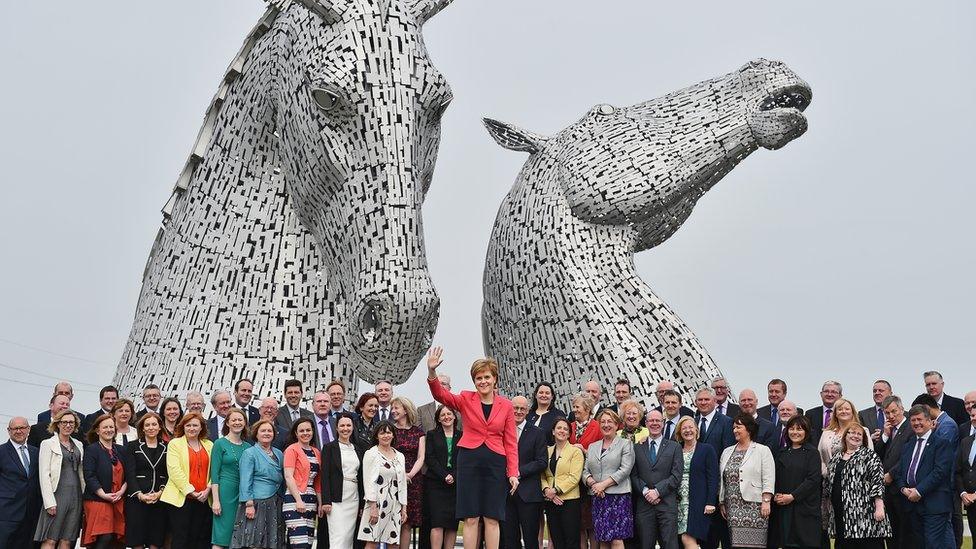
- Published6 May 2016
